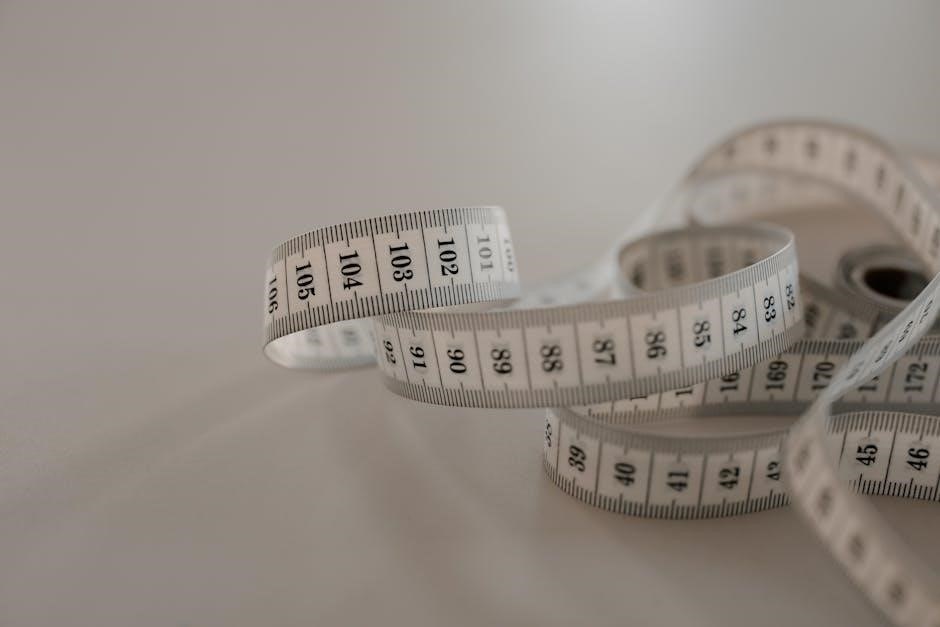This guide, authored by Ron Fry, provides essential strategies and answers to common interview questions, helping job seekers prepare effectively and stand out in competitive markets.
Overview of the Book’s Content
101 Excellent Responses to Interview Questions by Ron Fry is a comprehensive guide designed to help job seekers navigate the complexities of interviews. The book provides practical advice and proven strategies for answering common interview questions effectively. It covers various types of questions, including behavioral, technical, and situational queries, offering tailored responses to each. Additionally, the guide includes tips on preparation, body language, and follow-up techniques. With its clear structure and real-life examples, the book equips readers with the confidence and skills needed to excel in any interview setting.
The Importance of Effective Interview Preparation
Effective interview preparation is crucial for building confidence, showcasing strengths, and demonstrating readiness. 101 Excellent Responses to Interview Questions offers strategies and examples to help candidates excel.
Why Preparation is Key to Success
Preparation is vital for interviews, enabling candidates to confidently address common and challenging questions. 101 Excellent Responses to Interview Questions equips readers with tailored answers, ensuring alignment with the role and company values. By practicing responses, individuals can articulate their strengths and experiences effectively, making a strong impression. This guide also helps navigate technical, behavioral, and situational queries, providing strategies to highlight enthusiasm and understanding. Proper preparation not only reduces anxiety but also positions candidates as well-informed and genuinely interested in the opportunity, significantly enhancing their chances of success.

Common Types of Interview Questions
Interviews often include behavioral, technical, and situational questions. These assess skills, past experiences, and problem-solving abilities. Preparation for each type is crucial for a polished performance.
Behavioral, Technical, and Situational Questions
Behavioral questions focus on past experiences to gauge skills and character. Technical questions assess expertise specific to the role. Situational questions explore how candidates handle hypothetical scenarios. These types are designed to evaluate problem-solving, adaptability, and cultural fit. Employers use them to predict future performance and alignment with the organization. Understanding each category is vital for tailored preparation, ensuring responses align with the role’s requirements and company values. Examples include “Tell me about a time you overcame a challenge” or “How would you handle [specific situation]?”
How to Craft Impressive Answers
Use the STAR method ( Situation, Task, Action, Result) to structure responses clearly. Be concise, specific, and showcase achievements. Tailor answers to the role requirements and demonstrate enthusiasm.
Techniques for Standing Out
Use the STAR method (Situation, Task, Action, Result) to structure responses. Tailor answers to the role, emphasizing relevant skills and achievements. Be specific and concise, avoiding generic replies. Show genuine enthusiasm and align your responses with the company’s values. Highlight unique qualities and experiences that differentiate you from others. Use specific examples to demonstrate problem-solving abilities and teamwork. Avoid common mistakes like overexplaining or negativity. Practice delivery to ensure confidence and clarity, making a lasting impression on the interviewer.

Handling Tough and Tricky Questions
Stay calm under pressure and address challenging questions with honesty and tact. Focus on problem-solving skills and present setbacks as learning opportunities. Avoid negativity and emphasize growth.
Strategies to Tackle Challenging Queries
When faced with tough questions, remain calm and composed. Use techniques like the STAR method to structure responses, focusing on situations, tasks, actions, and results. Avoid negative language and frame challenges as opportunities for growth. Prepare for common tricky questions, such as “What’s your greatest weakness?” by turning them into positive discussions about self-improvement. Practice active listening and ask clarifying questions if needed. Show confidence and honesty, highlighting your problem-solving skills and ability to learn from experiences.

The Role of the Book in Your Preparation
This book serves as a comprehensive guide, offering insights and practical answers to interview questions, helping readers understand expectations and deliver polished, professional responses.
Key Features and Benefits
This book provides 101 well-structured answers to common interview questions, helping readers avoid mistakes and impress recruiters. It includes practical examples, tips, and strategies to enhance preparation. The guide covers various question types, ensuring readers are ready for any scenario. By offering clear and professional responses, it boosts confidence and helps align answers with the job requirements. This resource is invaluable for job seekers aiming to stand out in competitive markets and navigate interviews successfully with polished and impactful replies.
Practicing for Your Interview
Regular practice, such as role-playing or recording mock interviews, helps refine responses to common questions, improving confidence and delivery for a polished performance during real interviews.
Tips for Effective Rehearsal
Effective rehearsal involves role-playing interviews, using flashcards for common questions, and recording sessions to review delivery. Practice in front of a mirror or with a partner to refine body language and tone. Simulate real interview settings to build confidence. Review and adapt responses based on feedback, ensuring clarity and conciseness. Focus on highlighting strengths and experiences relevant to the role. Regular practice helps polish answers, reducing nervousness and improving overall performance during actual interviews.

Understanding the Interviewer’s Perspective
Understanding the interviewer’s perspective is crucial. They seek candidates who demonstrate genuine enthusiasm for the role and a clear comprehension of the company’s needs and expectations.
What They Look For in Responses
Interviewers seek responses that demonstrate enthusiasm for the role, a clear understanding of the company, and alignment with its values. They look for specific examples that showcase your skills and experiences. Your answers should be concise, confident, and tailored to the position, highlighting how you can contribute to their goals. Additionally, they assess your ability to think critically and communicate effectively. By providing well-structured and relevant responses, you can leave a lasting impression and meet their expectations effectively.
Additional Resources for Interview Success
Beyond the book, explore supplementary guides like “L’entretien d’embauche: Mode d’emploi” and online courses for French language interview preparation to enhance your readiness and confidence.
Supplements to Enhance Preparation
In addition to “101 Excellent Responses to Interview Questions,” resources like “L’entretien d’embauche: Mode d’emploi” by Florence Le Bras and French language interview preparation courses offer valuable insights. These supplements provide practical exercises, real-life examples, and tips tailored to specific industries or roles. For non-native French speakers, targeted language exercises from universities like ITMO can improve fluency and confidence. Combining these tools creates a comprehensive preparation strategy, ensuring readiness for both technical and behavioral aspects of interviews.
Real-Life Examples and Case Studies
The book includes real-life examples and case studies, demonstrating effective responses to challenging questions and highlighting common pitfalls to avoid, enhancing practical learning and application.
Learning from Others’ Experiences
The book shares real-life examples and case studies, offering insights into how others successfully navigated interviews. These stories highlight effective responses and common pitfalls, providing practical lessons for readers. By learning from others’ experiences, job seekers gain a clearer understanding of what interviewers value and how to present themselves confidently. These examples serve as valuable tools to refine personal strategies and improve interview performance, ensuring a more polished and professional approach to securing desired roles.
The book equips readers with proven strategies and timeless advice, ensuring confidence and preparedness. Practice, review, and tailor responses to stand out in every interview, securing success.